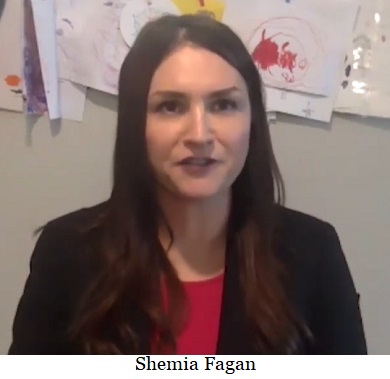
On this day, August 19, 2011, SoloPower of San Jose, California, won final approval for a $197 million federal loan guarantee to expand its headquarters and open two new manufacturing facilities in Portland.
 Post an Event
Post an Event
| Benton County Republicans’ Private Fundraising Event, “Bent-on Boots and Bling” with Trey Taylor |
| Friday, September 5, 2025 at 5:00 pm |
| Featuring Trey Taylor
Music Private Event
Friday, September 5, 2025 5:00-5:30 pm VIP Reception
5:30-8:00 pm Heavy Appetizers,
Auction, Concert
Red: $750 VIP Reception
Front Row Table Sponsor
White: $500 Table Sponsor
Blue: $50 per person
Limited Seating. Get Yours Now!!!
Support Local
Dress up: Bling, Cowboy, Patriotic Benton County Republican
FUNDRAISER
www.BentonGOP.org
Get your tickets today at:
https://www.bentongop.org/event-details/benton-county-republicans-fundraiser/form
About Trey:
Trey is the youngest African American Man in Country Music History. The Denver Post wrote
"It's impossible to miss his enthusiasm. With a fondness for cowboy boots, gaudy colors and dazzling jewelry, Trey Taylor could stand toe to toe with any of the Pop, Country or even Rap
contemporaries of his generation.“ |
| Trysting Tree Golf Club, 34028 NE Electric Rd., Corvallis |
That scraping noise you hear is teeth grinding
In a sign that the legislative session is starting to unravel, House Speaker Tina Kotek (D-Portland) and House Republican Leader Christine Drazan (R-Canby) have traded letters regarding how they see the rest of the 2021 Legislative Session proceeding.
In her letter, Speaker Kotek said:
As we navigate the daily challenges of operating the 2021 legislative session during the COVID-19 pandemic, I have been committed to four top priorities: safety, transparency, strong public participation, and the completion of the people’s work.
So far, we have been able to create a safe workplace while ensuring transparency and strong public participation. It hasn’t been easy, and it hasn’t been perfect. We have had many conversations about how we can improve committee procedures for both legislators and the public. I value all constructive feedback and will continue to do everything I can to make this session operate as smoothly as possible.
House members have been hard at work, and our committees are sending out many good bills for the chamber to consider. I am asking for your help to ensure we can meet those four priorities as we move into the next phase of our legislative work.
Next week, we are scheduled for 19 hours on the House floor. Several legislators who are not yet eligible for a vaccine have expressed concerns that this additional time on the floor will create unnecessary and additional risks of spreading COVID-19 among staff, legislators, and our families. The Oregon Health Authority has confirmed that decreasing the amount of time we spend together in close proximity reduces the risk of transmission. Therefore, I am requesting your assistance in the following actions to ensure our floor sessions are as safe and efficient as possible:
- Encourage your members to come to the floor promptly – when we convene and when votes are being taken – so that we can get to work immediately and minimize “down time†on the floor;
- Intervene, as necessary, to remind members to wear masks properly and keep a safe distance when they are talking to each other on the floor or in the gallery;
- Encourage members not to congregate too closely in the gallery;
- Monitor the number of members on the floor and support an equal distribution of Democratic and Republican members doing their work in the gallery or in their offices; and
- Collaborate to suspend the requirement that all bills be read in full, if not for the rest of the session then on a daily basis, or at minimum for bipartisan bills longer than five pages.
We all have a responsibility to keep each other safe. Until the county risk levels broadly reach the Lower Risk category and more members, staff and our family members are vaccinated, we have to work together to do the people’s work safely.
The impasse can be summarized as the party in power is upset because they have been unable to move a large agenda at a robust speed.
Representative Drazan replied with
this letter
I have received your letter detailing your approach to this unprecedented legislative session. I share your concern for maintaining public health, and would add to that a rising concern for the need to come together to heal and recover as a state and nation.
 The Oregon Legislature is not alone in navigating our obligation to fulfill the people’s work while minimizing health risks. In fact, several states have implemented measures that reflect innovative management of the legislative process, focusing not only on masks and social distancing, but recognizing the inherent inadequacy of the policymaking process itself under these circumstances. Below are a sampling of states that have announced and adopted changes to their legislative approach:
The Oregon Legislature is not alone in navigating our obligation to fulfill the people’s work while minimizing health risks. In fact, several states have implemented measures that reflect innovative management of the legislative process, focusing not only on masks and social distancing, but recognizing the inherent inadequacy of the policymaking process itself under these circumstances. Below are a sampling of states that have announced and adopted changes to their legislative approach:
- Alaska’s Legislature announced an intent to focus on budget and coronavirus.
- Washington House Democrats agreed to limit the number of bills introduced in 2021.
- Virginia’s House and Senate introduced limits to the number of bills that can be introduced.
- The Maryland Senate capped the number of bills a senator is allowed to introduce.
- Minnesota lawmakers announced a focus on the budget and the pandemic.
Here in Oregon, the House is running a crushing number of committees and pushing controversial legislation which impacts and reshapes our energy markets, labor practices, business mandates, criminal penalties, public safety, land use laws, housing policies, tax and spending policy, constitutional rights and quality of life. These concepts, many of which are being drafted on the fly and pushed to work sessions, are moving through committees despite substantial opposition and without a willingness to compromise or work to build bipartisan support.
Here are a few examples of the points of concern from this virtual session:
- Committees are moving contentious legislation with substantial opposition across multiple subject areas.
- The public has been given one minute, including introductions, to make their virtual case in committee, while invited proponents are given free rein.
- Committees have failed to give opponents of measures adequate opportunity to share their concerns before the members, on the record.
- Committees routinely reject alternative compromise language.
- Committee members have been asked to refrain from interactions with witnesses and instead direct their questions in writing outside of the public process.
- Work groups have not been inclusive or have been scheduled with inadequate time to fully vet complex issues.
This is not authentic engagement. This is closed door, offline, predetermined outcomes, not to be confused with meaningful bipartisanship in a public process.
As long as the building is closed to the public and deeply controversial legislation continues to be fast-tracked in committees, we will continue to depend on the Constitution, to remind the supermajority we should not operate like it’s business as usual while the public is shut out.
I understand from your letter you recognize that your recently proposed work schedule does not support public health. I agree. Branch staff and legislators alike are put at extreme risk by the proposed work schedule, which is designed to exert pressure and ensure the passage of controversial legislation, at the expense of public health.
The solution to this challenge is not to marginalize the minority or dismiss the concerns of the public.
Experts have declared it is unsafe to open the building. It is no less dangerous to expose staff to more than 12 hours a day, working in a closed Capitol.
There is a better way.
We are ready and willing to limit bill reading when the House changes course with a demonstrated commitment to work together:
- Do not exceed a regular full-time schedule for session days, to maintain public health for legislators and branch employees.
- Only advance budgets and legislation which have bipartisan consensus support.
- Shelve legislation which is divisive or controversial and not directly responsive to the pandemic or natural disasters.
- Require committees balance time among opponents and proponents.
- Make agenda space for full participation from committee members in deliberations and amendments.
This is a year for healing, in our state and nation; a time to come together. It is not a time for deeply divisive, partisan legislation while the public is locked out of the building. Struggling Oregonians don’t deserve to be traumatized further. Instead, let’s give them hope.
I look forward to working with you to find a path forward and encourage you to work with us to not only protect public health but find common ground in the days and weeks ahead.
The gravity of the impasse was felt during the floor session on Monday, March 22, when the Speaker asked that the Republican Caucus vote to move a bill back to committee without reading the entire bill. The bill is 171 pages long -- and would take an estimated eight and a half hours to read -- and the Republicans refused to grant a waiver on the requirement to read the bill.
--Staff Reports| Post Date: 2021-03-22 11:39:45 | Last Update: 2021-03-22 12:34:26 |
Every victim of these criminals will have to be contacted
Editor's note: This is the second of a multi-part series on Measure 11 and its impact on crime. This series is adapted from letters written to the legislature by Kevin Mannix, the author of Measure 11.
Proponents of the elimination of Measure 11 argue that it is sufficient to rely on the felony sentencing guidelines system. So, it is helpful for current legislators to compare the mandatory minimum prison sentence under Measure 11 with the guideline sentence range.
An examination of the reality of the sentencing guidelines as they were actually carried out in 1994, the last year before Measure 11 went into effect, is instructive. The low range of the sentencing guidelines was the norm.
In fact, in many cases convictions for very serious crimes lead to sentences under sentencing guidelines of probation rather than incarceration in state prisons. For example, in 1994 60 persons were convicted of Rape in the First Degree. Five of these 60 convicted rapists were sentenced to probation rather than prison under the complex formula of sentencing guidelines. This was the case even though the lowest guideline sentence for Rape in the First Degree was supposed to be 34 months.
Thanks to a comprehensive 1997 Oregon Criminal Justice Commission report, we can take a look at the actual prison sentence imposed under Sentencing Guidelines throughout 1994, in 34 out of the 36 counties in Oregon (two counties did not submit data). 1994 is the last year in which Measure 11 did not exist.
Here are some reality checks, all based on real world data of Oregon courts in 1994:
- 60 persons were convicted and sentenced for Rape in the First Degree; 5 of the rapists were not sent to prison but were placed on probation.
- 20 persons were convicted and sentenced for Rape in the Second Degree; 11 of these rapists were not sent to prison but were placed on probation.
- 88 persons were convicted and sentenced for Sodomy in the First Degree; 13 of these criminals were not sent to prison but were placed on probation.
- 21 persons were convicted and sentenced for Sodomy in the Second Degree; 9 of these criminals were not sent to prison but were placed on probation.
- 21 persons were convicted and sentenced for Unlawful Sexual Penetration in the First Degree; 8 of these sex offenders were not sent to prison but were placed on probation.
- 253 persons were convicted and sentenced for Sexual Abuse in the First Degree; 153 of these sex offenders were not sent to prison but were placed on probation.
The criminal justice system, sadly, under Sentencing Guidelines, fails to provide justice to victims of some of the worst violent and sexual assault crimes. This is the same sentencing system which opponents of Measure 11 want to return to. The actual statutory description of many of the 16 crimes covered by Measure 11 will help people understand why it has often been said "the crime defines the time" regarding the mandatory minimum Measure 11 prison sentences.
A D V E R T I S E M E N T

A D V E R T I S E M E N T
Governor Brown is considering granting early release for Measure 11 criminals who helped fight Oregon Wildfires. The only way the Governor can reduce any Measure 11 mandatory minimum prison sentence is by using her constitutional clemency power. Many believe that the exercise of clemency power requires that the Governor evaluate each specific case in which clemency is considered, and that she cannot carry out massive clemency grants which have the effect of changing established law regarding criminal sentences.
Many oppose this proposed reduction of sentences as to violent and sex criminals in light of the crimes which are involved and in recognition of the rights of victims to be consulted about this. Under the Oregon constitution every single victim of these Measure 11 criminals will have to be contacted in regard to this early release. This in itself imposes additional trauma on these victims.
Photo by Issy Bailey on Unsplash
--Staff Reports| Post Date: 2021-03-22 09:49:16 | Last Update: 2021-03-20 20:45:26 |
There’s a reason the pre-emption statute prevents a patchwork of laws
Imagine a government so out of control that it stops at nothing to provide extended rights to criminals while removing the basic rights of law abiding American citizens. You don't have to imagine because this is already happening on a local and national level. House Representative Brian Clem (D-Salem), Senator Ginny Burdick (D-Portland), and other career politicians are doing everything they can to fulfill the agendas of politicians and special interest groups while ignoring the will of the American people that they are in office to serve.
When the government wants to make laws that restrict your rights and then follows up with legislation that removes your right to defend yourself and restricts your ability to challenge them -you get legislation like
HB 3005, and we are no longer a free people.
Legislators in Oregon have already introduced a number of anti-second amendment bills that have been met with strong opposition, however in true politically motivated fashion they are moving forward with this unconstitutional legislation and ignoring the will of the people once again.
If passed,
HB 3005 will Repeal Oregons statute creating state preemption of local firearm regulation and statutes creating exceptions to preemption. This means that all of the anti-second amendment legislation that does not pass at the state level can be enacted on a county level. Local jurisdictions will be able to impose
unconstitutional gun laws and ordinances throughout the state of Oregon which will vary from county to county. This is clearly another attempt to further confuse and legislate away the second amendment rights of all Oregonians.
Some would say that anti-second amendment groups will continue to gaslight law abiding Oregonians by fanatically insisting that bills like
HB 3005 and HR130 will save lives and will not impact law abiding citizens if they just fall in line. This type of ignorance leads to dangerous legislation that costs lives and removes a citizens right to protect themselves in any place and at anytime. This is not "common sense legislation", this is out of touch and intentionally designed to disarm Oregonians. If allowed to pass
HB 3005 and others like it will allow the government to further dictate how and where you must store your firearm, when and where you can carry your firearm, and will
require the investigation of reports of improper storage of firearms and ammunition and will vary by locality.
There is a reason that the pre-emption statute prevents local jurisdictions from creating their own patchwork of laws and regulations, and why more than
40 states already prohibit the type of legislation proposed by
HB 3005 of confusing and unconstitutional legislation which turns law abiding American Citizens into violators, criminals and felons. There are countless accounts of individuals in Oregon alone whose quick thinking and quick access to their legally obtained firearm
saved their lives and the lives of others. Laws like this would cost more Oregonians their lives as they would be forced to lock up their firearms or leave them at home depending on the county they were in, passing through or visiting. In a self defense scenario seconds matter, criminals will not wait for you to get to your safe, unlock your firearm and perhaps load it while they wait to attack. This legislation lacks all evidence of common sense no matter the scenario.
A D V E R T I S E M E N T

A D V E R T I S E M E N T
Anti-second amendment legislation is opposed by the majority of Oregonians. Just ask the self described "left of center leaning" pro-second amendment "
Liberal Gun Club" who has over 30 state chapters. Oregonians do not believe the false narrative that supporters of our first and second amendment freedoms are only conservative right leaning individuals. According to some, this characterization is used by politicians seeking to further divide Oregonians while simultaneously eroding our constitutional rights. We see the divisive rhetoric from politicians, special interest groups and from biased media outlets who publish outrageous article such as "
What if they want you dead?, Leftists Bear Arms in self-defense," published by OPB that seems to take a somewhat pro-second amendment stance depending on how far right or far left those seeking to utilize their freedoms lean. We see through the hypocrisy, political tactics, and outright lies, Oregonians must continue to unite in opposition of this onslaught of unconstitutional legislation being proposed by out of control politicians.
The once slow erosion of our freedoms in Oregon and across our beautiful country is picking up pace and we are moving quickly toward true tyranny. Politicians are out of control in their demand for a passive and dependent populace. We have a president and politicians in office who have stated to the American people that they have "personal reasons" for enacting strict gun laws, it's time to remind them that they are not in office to fulfill personal agendas, its time to remind them that they are in office because we allow them to be our voice and if they cannot put aside personal and political agendas to represent the people, they must leave.
--Esther August| Post Date: 2021-03-21 20:38:46 | Last Update: 2021-03-22 08:09:55 |
What does “open†mean?
The closure of the Oregon Capitol during the 2021 Session begs the question, "Where in law does it require that the Capitol be open to the public during sessions?" There are two places in the Oregon Constitution that could be read as requiring this. The first is pretty explicit:
Article IV, Section 14. Deliberations to be open; rules to implement requirement. The deliberations of each house, of committees of each house or joint committees and of committees of the whole, shall be open. Each house shall adopt rules to implement the requirement of this section and the houses jointly shall adopt rules to implement the requirements of this section in any joint activity that the two houses may undertake.
This requires that the deliberations be open, but doesn't define what "open" means. The 2021 session featured many electronic methods of openness -- implemented with more or less success -- but that may or may not be "open." It hasn't been litigated. The second is less explict:
Article I, Section 26. Assemblages of people; instruction of representatives; application to legislature. No law shall be passed restraining any of the inhabitants of the State from assembling together in a peaceable manner to consult for their common good; nor from instructing their Representatives; nor from applying to the Legislature for redress of grievances.
"Consult for the common good" can be read as discussing politics.
--Staff Reports| Post Date: 2021-03-21 12:35:38 | Last Update: 2021-03-20 21:04:37 |
What does Measure 11 do?
Editor's note: This is the first of a multi-part series on Measure 11 and its impact on crime. This series is adapted from letters written to the legislature by Kevin Mannix, the author of Measure 11.
Up to 1989, Oregon law appeared to give judges wide sentencing discretion for felonies.
Felonies were divided into three classes, separate from murder. Judges could impose up to the following maximum sentences: 20 years for Class A felonies, 10 years for Class B felonies, and 5 years for Class C felonies. However, the discretion of judges was actually significantly limited because a parole board appointed by the governor could reduce sentences and release convicted felons early. It routinely did so. This was "reformed" by the adoption of felony sentencing guidelines in 1989.
In 1989, Oregon was confronted with a shortage of prison beds and a lack of "truth-in sentencing" because the parole board had broad authority to reduce sentences imposed by judges, and often did so. A comprehensive reform package was passed by the Legislature to establish a felony sentencing guideline system. Judges were constrained from imposing felony sentences outside the guidelines. They could only go outside the guidelines for "substantial and compelling reasons."
At the same time, sentences imposed by judges could only be reduced by up to 20 percent for good behavior in prison. Accordingly, the parole board power was restricted for sentences imposed under the new system.
The problem with the sentencing guidelines is that they were written to reflect Oregon's limited prison facilities, not a determination as to the appropriate sentence from the perspective of justice. The felony sentencing guidelines were resource-driven rather than justice-driven. Proponents of the guidelines promised that additional prison facilities would be established, and the guidelines could be strengthened as the facilities came online.
Between 1989 and 1994, no legislation was passed to provide additional prison resources or to enhance the sentencing guidelines. This led me to author Measure 11, which passed by a 66% favorable vote, in November 1994. Measure 11 established mandatory minimum prison sentences for the 16 most violent crimes.
A D V E R T I S E M E N T

A D V E R T I S E M E N T
Oregon voters placed Measure 11 on the ballot on November 1994 and it passed with a 66% favorable vote. Measure 11 went into effect in April 1995.
Measure 11 establishes mandatory minimum terms of imprisonment for criminals who have been convicted of 16 specific violent and sexual crimes. Measure 11 does not involve sentences for property crimes or drug crimes. Measure 11 only addresses the worst levels of violent and sexual crimes. For example, there are four levels of criminal assault and Measure 11 only applies to Assault in the First Degree and Assault in the Second Degree; there are three levels of robbery, but Measure 11 only applies to Robbery in the First Degree and Robbery in the Second Degree.
There are 16 crimes - out of the scores if not hundreds of crimes defined in Oregon statutes - which are covered by voter-passed Measure 11:
- Murder
- First Degree Manslaughter
- Second Degree Manslaughter
- First Degree Assault
- Second Degree Assault
- First Degree Kidnapping
- Second Degree Kidnapping
- First Degree Rape
- Second Degree Rape
- First Degree Sodomy
- Second Degree Sodomy
- First Degree Unlawful Sexual Penetration
- Second Degree Unlawful Sexual Penetration
- First Degree Sexual Abuse
- First Degree Robbery
- Second Degree Robbery
--Staff Reports| Post Date: 2021-03-21 09:37:23 | Last Update: 2021-03-21 09:45:46 |
Legislation would block independent journalists
HB 2486 can certainly be described as anti-independent-journalism legislation. It is proposed legislation by three Oregon Democrat legislators that would take away the power to bring important news to the people of Oregon from any organization who is not credentialed though the government.
When government heavily mandates journalism, the truly free press cannot easily or accurately portray the news of the stories happening around us, information that we all rely on for various reasons. Free speech in danger can endanger us all.
Representative Karin Power (D-Portland) and Representative Julie Fahey (D-Eugene) are the Chief Sponsors of this bill as well as being Regularly Sponsored by Representative Marty Wilde (D-Eugene). The law proposes to grant favoritism to only select main stream media outlets.
The proposed law states that it would give officials of public bodies the power to grant news media representatives access to scenes of emergencies or emergency police activity that are otherwise closed to the public. It does provide exceptions when access may be denied.
Perhaps most disturbingly, the bill directs the Department of State Police to develop guidelines for press credentialing.
A D V E R T I S E M E N T

A D V E R T I S E M E N T
Furthermore, the law also requires the department to consult with law enforcement and fire department personnel, representatives of local governing bodies and representatives of news media organizations in developing those guidelines.
And, as usual in Oregon, the Emergency Clause has been attached to this legislation, which would make the law instantly effected into law.
Apparently it is added in the law that access to scenes of emergencies or emergency police activity may be denied if the presence of news media representatives or the activities being conducted by new media representatives compromise the safety of emergency response employees, impede the response of emergency equipment or personnel or impede the investigation of the incident that constitutes the scene of emergency or emergency police activity.
Nothing in this alters the applicability of Federal Aviation Administration regulations that govern the closure or restriction of airspace over incidents.
--Bruce Armstrong| Post Date: 2021-03-20 13:29:05 | Last Update: 2021-03-20 16:38:10 |
“Democrats are intentionally putting felons inside the classroomâ€
HB 2942 which would allow individuals convicted of drug dealing, sex crimes into K-12 settings, and open the door to convicted criminals working and volunteering in K-12 educational settings has passed out of the Oregon House Judiciary Committee. It is now headed to the House Committee on Education. The bill is sponsored by Representative Bynum (D-Clackamas), Senator Michael Dembrow (D-Portland), and former State Representative Diego Hernandez (D-Portland).
HB 2942 would create a pathway for individuals charged and convicted of crimes such as manufacturing and/or delivering hard drugs like cocaine, heroin and meth or prostitution—including crimes targeting children within 1,000 feet of a school—to be eligible to work in school settings.
“It’s completely unacceptable that the Salem supermajority is intentionally putting felons inside the classroom and on the playground with our kids, even when their crimes included making and selling hard drugs next door to a school,†said House Republican Leader Christine Drazan (R-Canby.) “Keeping our children safe means keeping convicted criminals out of our classrooms.â€
HB 2942 would let the Teacher Standards and Practices Commission, the state agency in charge of licensing teachers, allow individuals convicted of certain crimes to work in a classroom setting. If
HB 2942 passes, Oregon’s youngest students could be in the care of role models who will guide their social and emotional development and stand at the head of a classroom with convictions that include:
- Unlawful manufacturing within 1,000 feet of a school of: hydrocodone, methadone, oxycodone, heroin, methylenedioxymethamphetamine, cocaine, methamphetamine, and other controlled substances.
- Unlawful delivery within 1,000 feet of a school of: hydrocodone, methadone, oxycodone, heroin, methylenedioxymethamphetamine, cocaine, methamphetamine, and other controlled substances.
- Unlawful delivery of hydrocodone, methadone, oxycodone, cocaine and methamphetamine.
- Prostitution
The hearing in the House Committee On Education is scheduled for March 30 at 1:00pm.
--Staff Reports| Post Date: 2021-03-20 06:50:37 | Last Update: 2021-03-20 21:05:35 |
What about connectivity and the digital divide?
Over the past year, Oregonians have figured out how to continue to conduct business virtually. The Oregon Legislature and other publicly elected bodies are no different. April 15, 2020 Governor Kate Brown announced
Executive Order 20-16 which stated:
During this emergency, state and local governments must continue to operate, provide essential services, and make decisions in a public and transparent manner. Governments must do so safely, consistent with my emergency directives. Public participation is essential to the functioning of our state and local governments, but in-person attendance at public meetings presents a risk to the public health and safety of Oregonians, unless appropriate measures are taken. Thus, during this emergency, public meetings should be held via telephone, video, electronic or other virtual means, whenever possible, to keep Oregonians safe, and to mitigate the spread of COVID-19.
Shortly after that, during the 1st special legislative session in June of 2020, the legislature passed
HB 4212 which codified into law the ability of public governing bodies to be able to conduct public business remotely until 30 days after the end of the declaration of a state of emergency expires.
One year later, the 6th extension of state of emergency keeps
HB 4212 in place. School boards, city councils and the legislature continue to operate in the virtual world. Now, the legislature would like to see this practice become permanent through the introduction of
HB 2560 by Representative Meek (D-Gladstone) and Senator Steiner Hayward (D-Portland). This legislation would require meetings held by public governing bodies to reasonably provide opportunities to the general public to access and attend the meeting by telephone, video, or other electronic or virtual means and to allow oral and written testimony by electronic or virtual means.
During a hearing on the bill earlier this month a great deal of written testimony was submitted, but only a hand full of people signed up to testify virtually in person. One of those was Mary Kyle McCurdy with 1,000 Friends of Oregon. She expressed support for the bill stating, “Remote access to public hearings and meetings opens these to so many more Oregoniansâ€. Kathryn Jernstedt with Friends of Yamhill County also testified on the bill. Although she was in favor of the bill, she wanted to make sure that it was “not the only option because there are barriers to this as we well as the pre-COVID systemsâ€. She was specifically concerned with connectivity and the digital divide. Ironically, during her testimony, her connection to the meeting had issues adding validity to her concern.
A D V E R T I S E M E N T

A D V E R T I S E M E N T
Mark Landauer with the Special Districts Association of Oregon also testified on the legislation. He reminded the committee that “it was local government that originally approached the governor asking for this type of electronic communication to be allowedâ€. They knew that they were not going to be allowed to conduct business in traditional ways during the State of Emergency, but the business of the people needed to continue. However, if made permanent, challenges remain with actual implementation and managing public expectations. There are 950 special districts that hold public meetings is some manner. They are not all going to have the capabilities to livestream meetings considering that at least 300 of them don’t even have websites currently.
The bill was amended in committee for a technical fix and
HB 2560 is headed to the House floor for a vote.
--Terese Humboldt| Post Date: 2021-03-19 18:05:43 | Last Update: 2021-03-19 18:31:22 |
Accelerated Vaccination Timelines given by Governor Brown
Multiple journalists could not get a straight answer from Oregon's Governor Kate Brown
in a press briefing with the Oregon Health Authority on Friday, March 19th, 2021.
She was asked why front-line workers were not highly prioritized for COVID vaccinations in Oregon as neighboring state Washington had done and as the CDC had recommended, but all that reporters got for an answer from her seemed rather hollow and disingenuous.
Governor Kate Brown held the press conference to announce Oregon’s accelerated vaccination prioritization timelines.
The Governor was joined by Patrick Allen, Oregon Health Authority (OHA) Director; Dr. Dean Sidelinger, State Epidemiologist; and Holden Leung, Chief Executive Officer of the Asian Health & Service Center.
A D V E R T I S E M E N T

A D V E R T I S E M E N T
"As vaccination efforts speed up, I want to thank Oregonians once again for making smart choices throughout this pandemic. Oregon continues to hold one of the lowest infection and mortality rates in the entire country. We have the fourth lowest infection rate since the start of the pandemic, and fifth lowest mortality rate. " said Governor Brown. "As we open up eligibility to all Oregonians on May 1st, I remain committed to the equitable distribution of vaccines for our seniors, frontline workers, and Oregonians with underlying health conditions."
"The Oregon Health Authority tells me that, provided supplies come in from the federal government as anticipated, we expect to have enough doses for every Oregonian who wants a vaccine to have the opportunity for at least a first dose by the end of May."
- Starting March 22, counties that can attest to largely finishing vaccinations for Oregonians 65 and older can move to the next prioritization groups.
- No later than March 29, vaccinations may begin for Phase 1B, Group 6, which includes people aged 45 and older with underlying conditions and some groups most vulnerable to COVID-19.
- On April 19, vaccinations may begin for Phase 1B, Group 7, which includes all frontline workers and people with underlying conditions aged 16-44.
- On May 1, all Oregonians age 16 and older will be eligible for COVID-19 vaccination.
--Bruce Armstrong| Post Date: 2021-03-19 16:58:28 | Last Update: 2021-03-19 18:45:40 |
More emergency powers for Oregon’s Governor
HB 2305 and
HB 2308 are being considered by the super-majority Democrat Oregon legislature, and are bills that would assign further emergency powers for the state's governor.
Observers in Oregon have noted current Governor Kate Brown's response to a variety of emergencies over her tenure, especially as of late, and her decisions do not always inspire confidence. More gubernatorial emergency powers might not be a good thing at this time, as checks and balances are still quite important in government.
Both HB 2305 and HB 2308 are sponsored by Representative Paul Evans (D-Monmouth), and could easily be passed with support from the super-majority Democrats, who currently have control of the state legislature.
A D V E R T I S E M E N T

A D V E R T I S E M E N T
Details within those proposed laws include the following:
Authorize the Governor, if necessitated by emergency, to require any person in this state to accept and fulfill orders for manufacture, sale or distribution of certain goods.
The bills do specify conditions under which a person may reject such orders.
It also provides that "a person that accepts order is not liable for contractual damages resulting from act or omission necessary for compliance with Act".
--Bruce Armstrong| Post Date: 2021-03-19 12:39:57 | Last Update: 2021-03-19 13:25:22 |
Spoiler alert: Democrats in the Legislature aren’t helping the situation
Editor's note: This article was adapted from a presentation to clients of Portland area realtor Royce Rogers.
Oregon has a housing shortage. The Urban Growth Boundaries, created by Oregon's land use laws in the early 1970s, are filling up. Supply and demand drive prices of single-family homes to levels that are unaffordability. Apartments must provide a higher percentage of dwellings.
Unfortunately, new regulations show a disconnect between policy makers and the incentives that cause risk takers to build apartments. In December 2016, Portland’s City Council enacted a strong inclusionary housing requirement that all new apartment buildings in Portland would have to set aside a portion of their units for low- and moderate-income housing. The new requirement didn’t kick in until February 2017, and because the requirement applied to nearly all apartment buildings with 20+ units there was a land rush of developers who filed under the old rules which in turn produced a temporary flood of new apartment buildings, that have, over the past four years, mostly been built.
This decline in multifamily permits signals trouble for Portland's apartment supply for the coming years. While in the short-term rent increases have been minimal and supply has increased, national forecasters like Zillow are predicting a rapid rebound in demand for urban markets post-pandemic. That has owners of existing apartments with an excellent chance to profit in Portland as housing providers continue to stay one step ahead of politicians enacting feel-good ordinances. The new requirements have also signaled more permanent changes. One of the key aspects of the requirements is that it exempts buildings that have less than 20 units, which has prompted many developers to shift to smaller buildings.
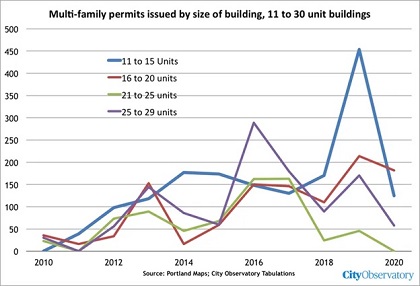
This has also led developers to get creative as the requirement of 20 units only applies to a single building, meaning you can build multiple buildings in one development project. There is a good example in Northwest Portland where developer Noal Johnson is building eight five-story residential buildings which total to 145 units although each individual building contains less than 20.
Overall inclusionary zoning may have helped with supply and rents in the short term but the fact that very few new buildings are being built now will hurt Portland in the near future. The new apartments that aren’t being built now in Portland will almost certainly lead to higher rents and less affordability in the years ahead—exactly the opposite of the expressed intentions of those who enacted this policy.
--Tom Hammer| Post Date: 2021-03-18 16:26:05 | Last Update: 2021-03-18 11:58:43 |
The Constitution gives the Legislature authority over the process
The Oregon Department of Justice, led by Attorney General Ellen Rosenblum (D-Portland) on behalf of Secretary of State Shemia Fagan (D-Portland), has filed a response to the Oregon Legislature’s petition for a writ of mandamus, related to state Legislative redistricting, with the Oregon Supreme Court. A writ of mandamus is a directive by the courts to a government to have them act or cease acting.
Secretary Fagan’s response notes that the Legislature’s requested delays in redistricting timelines for state Legislative maps will require moving the 2022 primary elections in all 36 counties and numerous other elections-related deadlines. The response demonstrates that the Legislature can access quality population data from the U.S. Census Bureau’s partner in Oregon, the Population Research Center, and can use that data to produce redistricting maps without delay, leaving opportunities to incorporate Census data when it becomes available.
“As Oregon’s chief elections officer, I am responsible for safeguarding the elections process for all Oregonians. I am deeply concerned about the ability of our state’s county clerks to administer stable, predictable elections next year if the Legislature is successful in moving deadlines and changing 2022 election dates,†Secretary Fagan said. “As detailed in our response, moving the 2022 May primary would strain county and state resources and risk significant voter confusion at a time when it is more important than ever for us to build and maintain public trust in our elections. We owe it to Oregonians to do everything we can to fulfill our constitutional obligation on time and without impacting the 2022 elections.â€
In the filing, Interim Oregon Elections Director Brenda Bayes detailed the list of potential impacts on the state’s 2022 election cycle if state Legislative redistricting dates are allowed to be pushed out 60 days after the redistricting data arrives. Those potential impacts include:
- Shifting dates could affect the primary and general election in 2022;
- The expense of substantial time and resources spent informing voters and candidates about the changes to long established election dates and related deadlines;
- The risk that candidates file and run in a May primary for a district with boundaries that change, disqualifying them from seeking office;
- Potential for disproportionate harm to candidates with fewer financial resources;
- Significant technical reprogramming costs for state and county governments; and
- The potential to inflame misinformation and distrust in elections.
A D V E R T I S E M E N T

A D V E R T I S E M E N T
Each decade, states are required to redraw boundaries for state Legislative and federal Congressional districts to account for population changes. Oregon’s state Legislative redistricting process is detailed in Article IV, section 6 of the Oregon Constitution. The Constitution gives the Oregon Legislature clear authority over the process, with the Secretary of State as a backstop if, for some reason, the Legislature is unable to complete its process. The process for federal Congressional redistricting, which redraws Oregon’s district boundaries for the United States House of Representatives, is guided by state law with the Oregon Supreme Court as a backstop. The Secretary of State has no role in federal Congressional redistricting, which is not addressed in the Legislature’s petition.
--Staff Reports| Post Date: 2021-03-18 13:59:43 | Last Update: 2021-03-18 14:05:57 |
Read More Articles






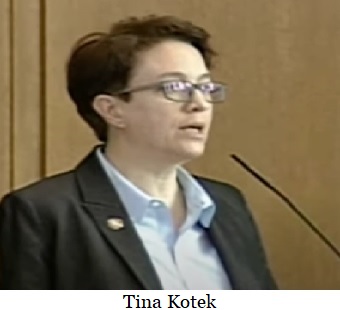
 The Oregon Legislature is not alone in navigating our obligation to fulfill the people’s work while minimizing health risks. In fact, several states have implemented measures that reflect innovative management of the legislative process, focusing not only on masks and social distancing, but recognizing the inherent inadequacy of the policymaking process itself under these circumstances. Below are a sampling of states that have announced and adopted changes to their legislative approach:
The Oregon Legislature is not alone in navigating our obligation to fulfill the people’s work while minimizing health risks. In fact, several states have implemented measures that reflect innovative management of the legislative process, focusing not only on masks and social distancing, but recognizing the inherent inadequacy of the policymaking process itself under these circumstances. Below are a sampling of states that have announced and adopted changes to their legislative approach:







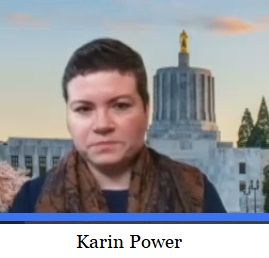

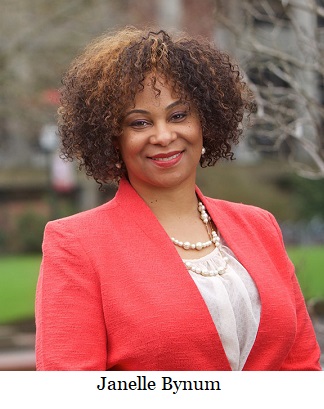
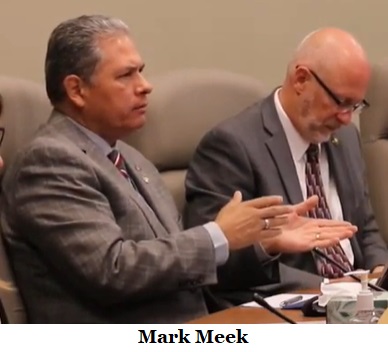






 This has also led developers to get creative as the requirement of 20 units only applies to a single building, meaning you can build multiple buildings in one development project. There is a good example in Northwest Portland where developer Noal Johnson is building eight five-story residential buildings which total to 145 units although each individual building contains less than 20.
This has also led developers to get creative as the requirement of 20 units only applies to a single building, meaning you can build multiple buildings in one development project. There is a good example in Northwest Portland where developer Noal Johnson is building eight five-story residential buildings which total to 145 units although each individual building contains less than 20.
